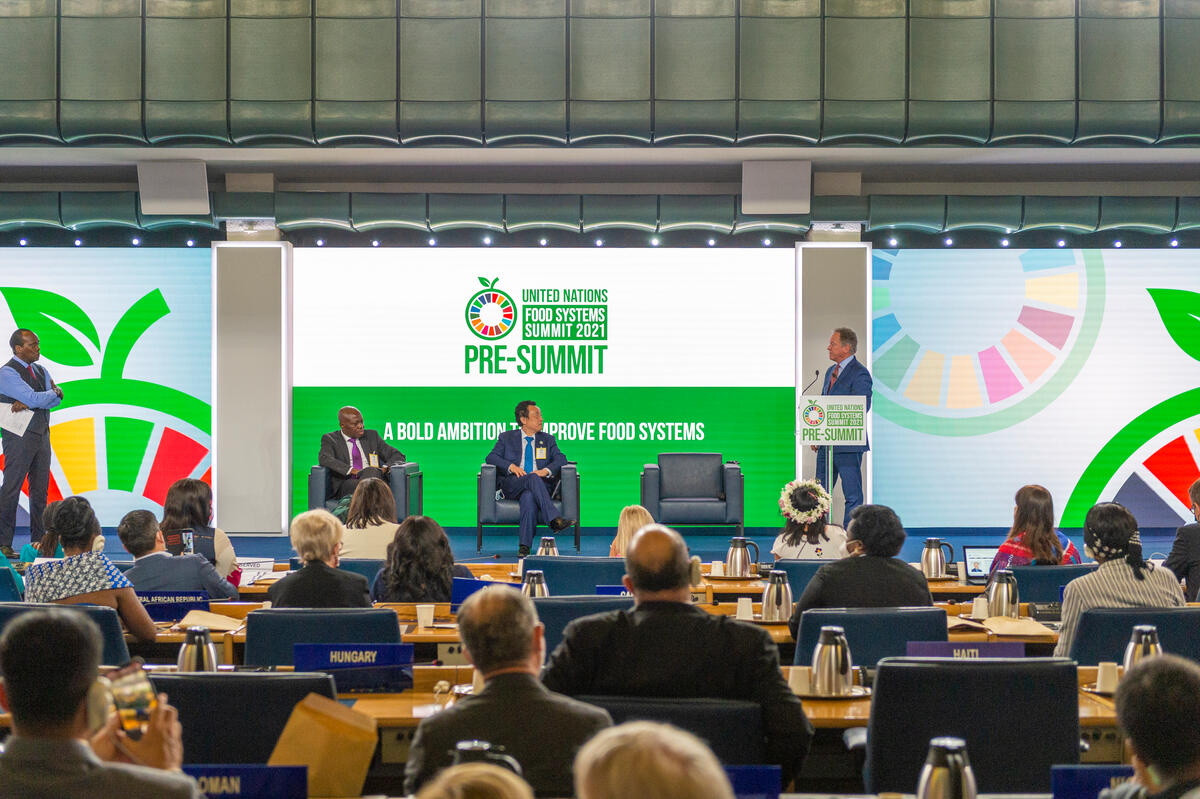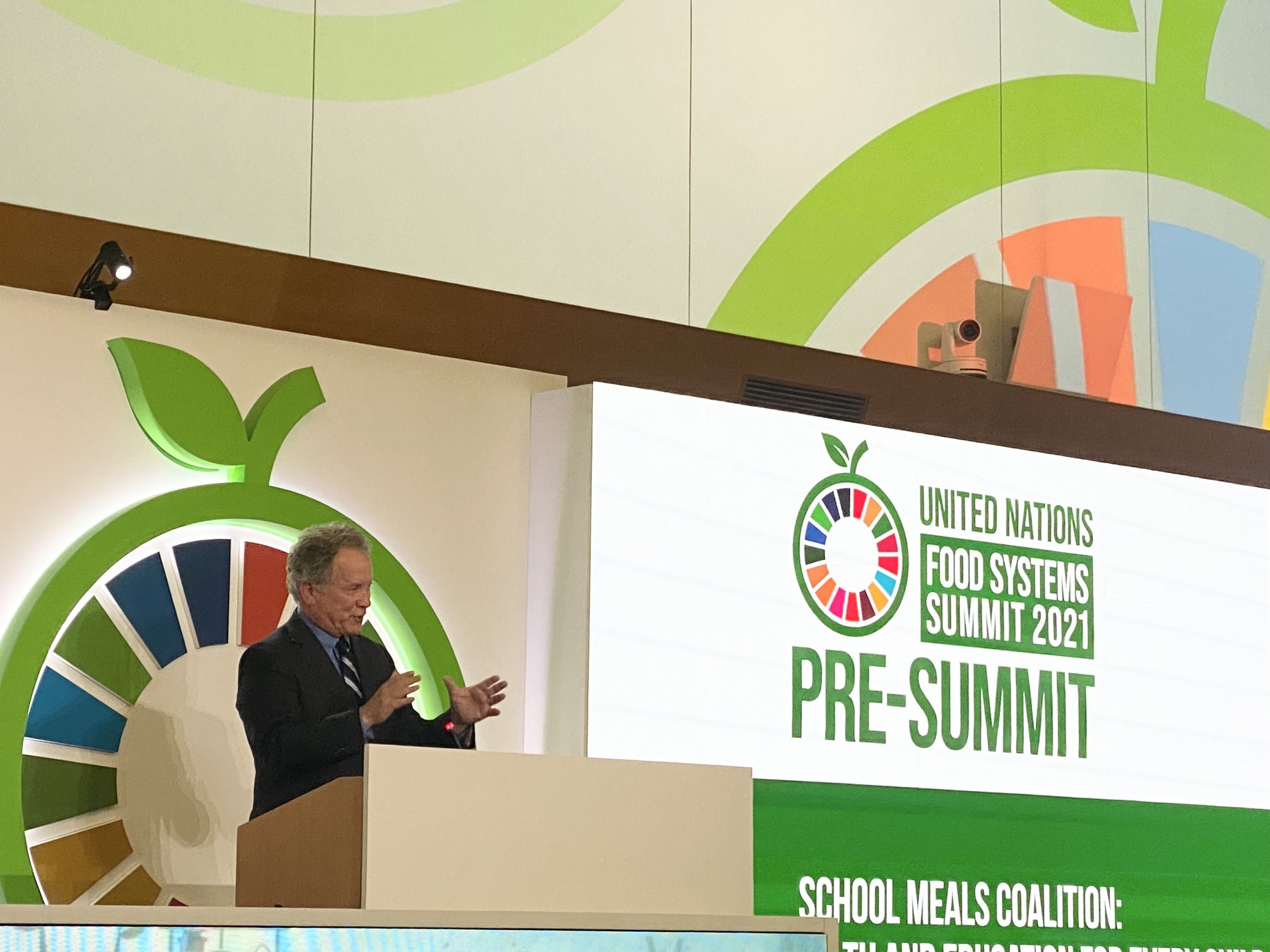
More than 100 countries, including Brazil, came together over the course of three-days to discuss how they will transform their national food systems to drive progress against the Sustainable Development Goals by 2030. Convened at the UN Food Systems Pre-Summit, more than 500 in-person delegates and over 20,000 virtual delegates indicated how they would implement changes for more sustainable, equitable, resilient and nutritious food systems after an extensive process of engagement and dialogues seeking new ideas and evidence-based solutions. The Pre-Summit took place in Rome from July 26 to July 28 and is part of a process that will culminate at a Head of State-level Summit in New York this September.
The emerging global School Meals Coalition, supported by the WFP Centre of Excellence against Hunger Brazil, was one of the highlights of the last day of the event, at a panel with the participation of David Beasley, WFP Executive Director, Valerie Guarnieri, Assistant Executive Director, Carmen Burbano, Director School-based Programmes at WFP, and representatives from Africa, Latin America and Europe. “If you want to see stronger local communities, teen pregnancy rates drop, educational opportunities increased, an increase in GDP and economic empowerment, especially of girls, then provide school meals”, urged David Beasley at the event. He also highlighted that, for every US$ 1 invested in school meals, there is a US$ 9 return, and a 10% GDP increase in every nation that provides school meals.

The WFP Centre of Excellence against Hunger has been taking good practices in school feeding inspired in the Brazilian model to several countries in the world over the past decade. As part of this effort, the centre has been participating in and supporting several national dialogues, including events about the Beyond Cotton Project in partnership with the Brazilian Government. In addition, representatives from the Centre have taken part in the International FoodTech Forum and will join the FitsAgro event in August, both related to the Food Systems Summit dialogues. The Centre of Excellence is also supporting a joint campaign from the United Nations Country Team in Brazil around food systems and youth in August, with the aim to explore the connection of food security and all Sustainable Development Goals and the mandates of all UN agencies and programmes.
In addition to that, the Centre of Excellence is involved in the School Meals Coalition, where it will be supporting the Peer-to-Peer Network in promoting best practices and facilitating South-South exchanges. Daniel Balaban, WFP Representative in Brazil and Director of the Centre of Excellence, spoke at the event that marked the launch of the Research Consortium. “Our participation in the National Dialogues has been very focused on the use of technology and innovation to promote more sustainable food systems, so that is a topic we are very interested in as well”, said Daniel Balaban.
About the 2021 UN Food Systems Summit
The UN Food Systems Summit was announced by the UN Secretary-General, Antonio Guterres, on World Food Day last October as a part of the Decade of Action for delivery on the SDGs by 2030. The aim of the Summit is to deliver progress on all 17 of the SDGs through a food systems approach, leveraging the interconnectedness of food systems to global challenges such as hunger, climate change, poverty and inequality. More information about the 2021 UN Food Systems Summit and list of Advisory Committee and Scientific Group members can be found here.
The Food Systems Pre-Summit was held in Rome under the leadership of the Secretary-General and in partnership with the Government of Italy from July 26 to July 28.




